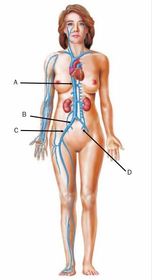Ivy Tech Community College, Anatomy and Physiology 102 (APHY102), Lab and Lecture Exam 2, Chapter 15, The Cardiovascular System
Angeheftet an
261
1
0
Keine Merkmale angegeben
|
|
Erstellt von Kyla S
vor mehr als 8 Jahre
|
|
Schließen



